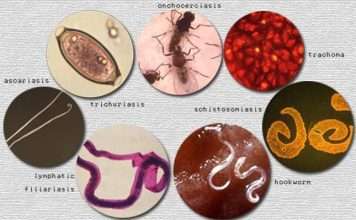New data from the World Health Organization indicates that an estimated 138.9 million Nigerians require support in addressing Neglected Tropical Diseases.
This information was obtained from the latest epidemiological and programmatic data for 2022, which were collected, compiled, and analyzed in 2023, and acquired from the WHO on Saturday.
The WHO also noted that NTDs are widespread in Nigeria, ranking first in the African region and second globally, behind India.
The organization defines NTDs as a diverse group of conditions caused by parasites, bacteria, viruses, fungi, and non-communicable factors, with Nigeria hosting over 15 of these illnesses.
“Nigeria is endemic for several NTDs. The only disease eliminated was dracunculiasis (Guinea-worm disease) in 2013. The population requiring interventions against NTDs was approximately 138.9 million in 2022, ranking first in the African region and second globally after India.
“This includes 138.9 million requiring treatment for lymphatic filariasis through mass drug administration; 48.7 million requiring treatment for soil-transmitted helminthiases through mass drug administration; and 43.5 million requiring treatment for onchocerciasis through mass drug administration,” WHO mentioned.
Meanwhile, the Federal Government had in 2023, stated it would eliminate NTDs by 2027.
The Director of the WHO Global Neglected Tropical Diseases Programme, Dr Ibrahima Fall, mentioned,
“With a renewed focus on strategic priorities addressing advocacy for action, partnership, costing and accelerated implementation, technical gaps including research and development and leadership.
“We must intensify our collective action to address the deep-rooted inequalities that fuel the transmission of NTDs in the populations where they persist.”
